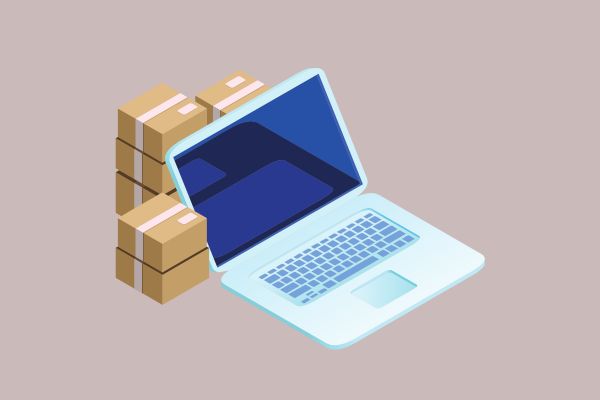What is Customs Supervision According to Legal Regulations? How is the Duration of Customs Supervision Regulated?
What is customs supervision?
According to Clause 5, Article 4 of the Customs Law 2014, it is defined as follows:
Customs supervision is a professional measure applied by the customs authority to ensure the intactness of goods, compliance with legal regulations regarding the preservation, storage, loading, unloading, transportation, and usage of goods, as well as the exit, entry, and transit of vehicles that are subject to customs management.

What is customs supervision according to legal regulations? How is the duration of customs supervision regulated?
How is the duration of customs supervision regulated?
According to the provisions of Clause 4, Article 38 of the Customs Law 2014, as follows:
Subjects, methods, and duration of customs supervision
...
4. Duration of customs supervision:
a) Imported goods are subject to customs supervision from the time they enter the customs operation area until they are cleared and released from the customs operation area;
b) Exported goods exempt from actual inspection are subject to customs supervision from the time they are cleared until they leave the customs operation area. In the case where actual inspection is required, exported goods are subject to customs supervision from the commencement of the actual inspection until they leave the customs operation area;
c) Transit goods are subject to customs supervision from the time they arrive at the first entry checkpoint until they leave the last exit checkpoint;
d) The duration of customs supervision for means of transport is implemented according to the provisions of Article 68 of this Law.
Thus, the duration of customs supervision is implemented as follows:
- Imported goods are subject to customs supervision from the time they enter the customs operation area until they are cleared and released from the customs operation area;
- Exported goods exempt from actual inspection are subject to customs supervision from the time they are cleared until they leave the customs operation area. In the case where actual inspection is required, exported goods are subject to customs supervision from the commencement of the actual inspection until they leave the customs operation area;
- Transit goods are subject to customs supervision from the time they arrive at the first entry checkpoint until they leave the last exit checkpoint;
- The duration of customs supervision for means of transport is implemented according to the provisions of Article 68 of the Customs Law 2014.
Can customs procedures be performed without paying taxes?
According to Article 9 of the Export and Import Tax Law 2016, it is stipulated as follows:
Tax payment deadline
1. Exported and imported goods subject to tax must pay taxes before clearance or release of goods according to the provisions of the Customs Law, except as provided in Clause 2 of this Article.
In cases where the tax liability is guaranteed by a credit institution, goods can be cleared or released but must pay late payment interest according to the provisions of the Tax Management Law from the day they are cleared or released until the day the taxes are paid. The maximum guarantee period is 30 days from the registration date of the customs declaration.
In cases where the tax liability is guaranteed by a credit institution but the tax payer fails to pay taxes and late payment interest within the guarantee period, the guaranteeing organization must pay the full tax amount and late payment interest on behalf of the taxpayer.
2. Taxpayers eligible for prioritized policies according to the provisions of the Customs Law must pay taxes for cleared or released customs declarations for the month no later than the 10th day of the following month. If taxes are not paid within this period, the taxpayer must pay the full tax debt and late payment interest according to the provisions of the Tax Management Law.
According to the above regulations, exported and imported goods subject to tax must proceed with tax payment before clearance or release, except for the case in Clause 2, Article 9 of the Export and Import Tax Law 2016.
Article 37 of the Customs Law 2014 stipulates as follows:
Goods clearance
1. Goods are cleared after completing customs procedures.
2. In cases where the customs declarant has completed customs procedures but has not paid or fully paid the tax amount within the stipulated period, goods can only be cleared if a credit institution guarantees the tax liability or the tax payment deadline is applied according to tax laws.
3. In cases where the goods owner is fined administratively for customs violations, and the goods are allowed for export or import, goods can be cleared if the fine is paid or a credit institution guarantees the payable amount for executing the decision on fine by the customs authority or competent state authority.
4. For goods requiring inspection, analysis, or assessment to determine eligibility for export or import, the customs authority will only clear the goods after determining their eligibility based on inspection, analysis, or assessment results or exemption notification from the specialized inspection authority according to the law.
5. Goods for urgent needs; specialized goods for security and defense purposes; diplomatic or consular bags, luggage of entitled organizations, individuals, will be cleared according to Articles 50 and 57 of this Law.
Goods can only be cleared after completing customs procedures.
Therefore, according to the above provisions, the failure to pay tax for exported and imported goods subject to tax will still allow customs procedures to be performed. However, after completing customs procedures, the goods will not be cleared.
LawNet